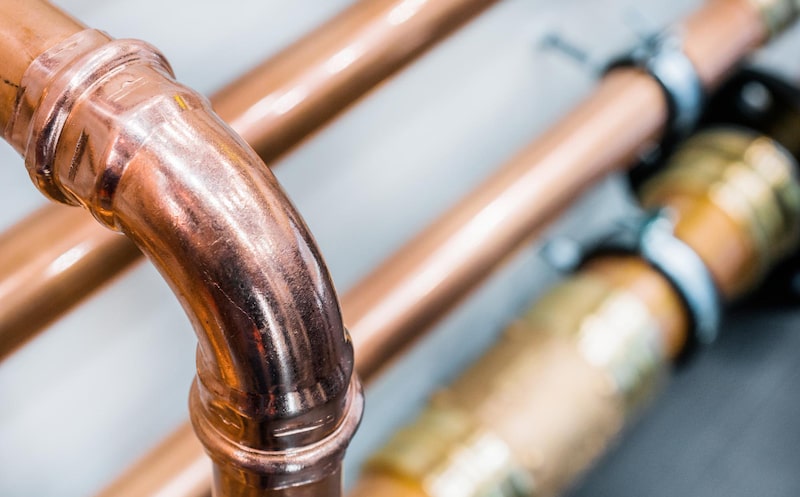The dead of winter and dropping temperatures have many homeowners scrambling to stay warm and protect their families. With such a high potential for your property to freeze over, it makes sense to worry about the integrity of your pipes.
You can expect an increase in pressure in your home’s pipes when your water freezes. This is due to an expansion of the water as it reaches the freezing point. When this happens, it becomes more likely for your pipes to crack or burst.

Many may wonder whether their insurance policies cover possible damage caused by frozen pipes. The good news is, depending on the severity of the freezing and the sudden nature of the event, homeowners insurance can cover damage caused by your frozen pipes. For the majority of cases, the insurance carriers will cover the water damage as it is deemed sudden and accidental, which is a covered peril under standard home insurance plans.
The phrase “sudden and accidental” plays a significant role here. This is used to describe the types of events covered by your insurance. Frozen pipes that burst due to improper care or maintenance don’t fall under this umbrella term.
Moreover, the cost of repairing the actual frozen pipes that burst will not be covered by some insurers. This could leave you paying for an extensive plumber’s fee.
To find out more details concerning what kind of coverage you get for frozen pipes, keep reading! We’ll go over the coverages you need to prevent you from paying thousands of dollars to replace or repair your property.
Are frozen pipes covered by my homeowners policy?
Prior to settling into your home and purchasing homeowners coverage, it is imperative that you understand the perils that will be covered before any disaster has an opportunity to strike. This way you know how your particular insurance carrier is going to react to each individual crisis that could potentially arise, including frozen pipes.
For the most part, your carrier is going to cover the water damage that is done by the pipe that has burst open. Depending on what the terms of your policy dictate, you should anticipate reimbursement to include:
- The amount to take out and rebuild the wall where the damaged pipe is
- Coverage for loss of flooring, carpets, drywall, furniture, or personal belongings
- Restoration due to damage from water and preventative measures for mold
When your frozen pipes are covered
Your homeowner’s insurance takes care of cleaning and repairs due to water damage that is a result of a frozen pipe that has burst. This is thanks to your dwelling coverage which takes care of events caused by freezing.
It’s very important to know what insurance coverage you need for broken pipes. Accidental water damage caused by frozen pipes is covered by a home insurance policy that includes coverage for:
- Dwelling coverage
- Other structures
- Personal property
- and/or loss of use
Dwelling Coverage
Your dwelling coverage can help you get the money you need to rebuild or repair your home in the event that it has been damaged by a covered event, like freezing pipes.
It’s always a good idea to speak with your insurance agent about the estimated replacement cost of your home. Your dwelling coverage limits are determined by the estimated cost of rebuilding your home.
This limit will matter greatly if your pipes freeze and cause water damage to your property’s structure. Items like your walls, floors, banisters, or stairs are examples of covered damaged items under your dwelling coverage.
Other structures
The “other structures” section of your insurance policy will help you pay for the damage caused by frozen pipes on outlying structures on your property. This could be your detached garage or pool house.
The other structures on your property are only covered for about 10% of your dwelling coverage. Here is where it paying attention to your policy matters.
Let’s say your pool house floors and walls were destroyed by frozen pipes that burst. If the damage cost $20,000 and your dwelling coverage tops out at $100,000, you will only be covered for $10,000 worth of the damage.

Personal property coverage
In the event of a covered loss, your personal property coverage provides coverage for your belongings. These items are things like your furniture, clothing, or accessories.
This is another moment where it counts to pay attention to your policy. Personal property damage is typically either coerced by actual cash value or replacement cost. This means either your property will be evaluated based on how much it’s actually worth, or how much it was worth after the event.
You may be able to extend your policy to cover your personal property at actual cash value rather than replacement cost. There are also home warranties you can look into that will protect your precious items from frozen pipes.
Loss of use
If you are experiencing a covered event that makes your house temporarily uninhabitable, you will have additional protection with loss of use coverage. This type of insurance can help cover the additional costs for housing and living expenses that you will incur because of frozen pipes.
These extra expenses could be from hotel stays, pet boarding costs, or transportation. Loss of use limits are typically set between 10 and 20% of your dwelling coverage.

When frozen pipes are not covered
There are a few exceptions to your frozen pipe coverage. First, you need to have taken the steps to prevent your pipes from freezing in the first place.
Your policy may not cover you if it seems that you did not take the proper steps to protect your property. With most policies, you have to maintain a certain temperature on or inside your dwelling. This is regardless of if it’s occupied.
Let’s say you were on a winter vacation and didn’t keep the temperature in your home monitored. In this case, your insurance claim may be denied due to negligence.
Additionally, your pipes will not be repaired if they have not been properly taken care of. After all, general wear and tear can cause a pipe to freeze and cause chaos much easier. As an increased risk, it’s important to always take care of your pipes during all seasons.
The damage that has been done to the actual pipe or the plumbing system itself is not typically going to be covered by the insurance provider.
Steps to follow after the pipes freeze
If you have frozen pipes and they burst, there are steps that you need to follow in order to minimize the damage so that you can help to ensure that your insurance provider will take on your claim.
- Stop. There can be a whole lot of water expelled from the burst pipe in a very short span of time causing loads of damage. It is critical that you respond instantly in order to prevent the spreading of water and limit the amount of damage. First thing is to shut the water off with the emergency valve. Not taking any measures to stop the damage may cause the carrier to deny a claim.
- Document. You want to take pictures or videos of flooring, walls, pipe, and personal belongings that have been damaged. Take notes with the date of the incident.
- Contact. After you have taken these measures, you need to call the insurance provider. Once you speak with a representative, you need to be sure to site ‘water damage’ as opposed to ‘flood’ because flooding is not covered by insurance carriers unless you have a separate insurance plan .
Winter safeguarding checklist
Insurance companies are sticklers for negligence. There are many ways you can help prevent your pipes from freezing. Even if they do end up freezing and causing damage, your insurers will know you took the proper steps.
You can safeguard your pipes and prepare them for freezing temperatures in a few ways. First, it’s recommended to keep your home no colder than 55 degrees Fahrenheit. This helps ensure your home and pipes are above freezing point.
One popular way to keep your pipes from freezing is to keep your faucets dripping in uninsulated areas. Even a trickle of cold water can help prevent exposed pipes from freezing.
If you’re going away for a while, you still need to protect your property. It may be necessary to remove garden hoses from outside water features. Afterward, you should cover all exterior faucets.
Shutting off your utilities entirely is also a good idea for long absences. You can drain your appliances of any water and use your shut-off valve to ensure no water can freeze your pipes. Finally, if you’re able, have a neighbor come by occasionally and check on your property. They can help mitigate any possible freezing before it happens.
Conclusion
Your homeowners insurance is a valuable tool that can help protect you in the event of sudden and unforeseen damage caused by frozen pipes. This includes the damage to your property, your dwelling, and any extra living expenses.
However, it’s important to remember that it won’t cover the costs of repairs if you failed to take preventative maintenance steps beforehand. There are easy ways to help protect your property from freezing, and insurers will check to make sure you’ve taken those precautions.
By regularly maintaining and checking your pipes, you can help keep them from freezing. Moreover, you can save yourself from a potentially expensive repair bill. Check the integrity of your pipes year-round to get ahead of any damage that might exacerbate a freezing problem.

